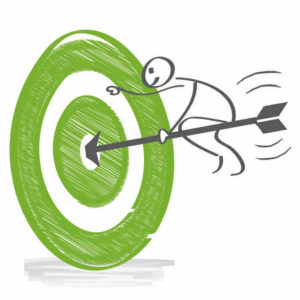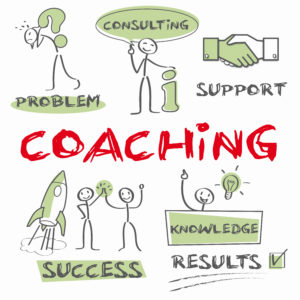
Systemic Business Coaching to create new paths in your career
How about finding YOUR solutions to your basic questions and challenges in your job? It is a great feeling to work out answers on your own and to put them into action with self-confidence and motivation. But how often do we find it challenging to face these questions? How often do we, as leaders, have a structuring conversation about possible approaches? Often the trust in colleagues and superiors is not deep enough. The private environment is far away from your issue, to work on it from multiple angles.
Systemic business coaching can build great bridges here. It offers the client, i.e., YOU, highly effective and professional support on the way to your own goal.
A possible scenario
A successful project manager, Anne Schmidt, would like to take on a responsible management role in a renowned construction company. She knows that she has what
After intensive research and several personal interviews, she decided on a recognized Systemic Business Coach who can also prove years of leadership experience in international corporations. In addition, she is convinced by his training certified according to ECA standards. This combination appeals to her.
Already in the first session, she notices that she is working out the answers to her questions. She instantly understands the essential difference between consulting and coaching. If she had initially hoped that the coach would present her with a to-do list that she only had to check off, she is delighted to discover that the first ideas for solutions come from within herself. Through the empathic and, at the same time, challenging questions of the coach, she feels safely led on paths she has never walked before—her approaches to the solutions to her questions.
After five months, she is offered an attractive leadership position, which she happily takes up with strong self-confidence in her abilities.
What is Systemic Coaching?
Here we need to clarify two terms that are understood differently in different contexts:
In our understanding, coaching is described as the professional accompaniment of people on the path of challenging change. In contrast to fitness coaching, for example, in Systemic Coaching, no advice is given by the coach. It is much more accurate to say “consulting without advice”. The client -also called the coachee- is offered active support in developing their solutions. The client is always in the center and is his best expert.
Systemic approach: The basis of the systemic approach is the idea that everyone is a part of a larger whole, the system. For example, a person is part of a family, or a department head is part of their department. This inner attitude of the coach is already conveyed during the certified training by experienced trainers. It becomes immediately apparent that an individual is usually part of several systems. Since a system always has a physical or a defined, virtual boundary (e.g., a team in an organization), it is a basis for systemic coaching to consider which system the client is in and which methods influence him. This holistic view is the foundation of systemic coaching to achieve sustainable solutions.
What does a Systemic Business Coach do?
In systemic coaching, the coach is an active companion of the client in a structured process. This process starts with clarifying the assignment – what is it actually about?
What is to be achieved? In this phase, the foundations for the success of the coaching are laid. In addition to the client, there are usually people who significantly influence the content of the assignment. These should be the superiors in particular. The competence of the coach is demonstrated by acting sensitively. He takes care that the assignment is in the sense of the coachee and that all persons directly involved agree. Only under this premise can the coaching lead to success for the participant AND the company.
The actual coaching process starts with the definition of goals – What should be achieved in the short term and the long term with the support of coaching? Professionally formulated goals have a variety of effects: They motivate! They make success visible and measurable! They open up the future for us, focus our energy, and give us strength and meaning. In this process step of goal definition, extraordinary situations and insights of the client arise, which release positive energy.
Depending on the goal and the client, the coach selects interventions to offer the client the experience of different possibilities. Suggestions and reflections on the situation from different perspectives of the client emerge. It is crucial here that the coach leads the process. The client fills this with factual descriptions, observations, feelings, ideas and solution options.
An experienced systemic coach cares that the ideas turn into a realizable reality. What is the first action step? Which is the second? The point is to move into realization. The client should be able to experience the first changes promptly. These first steps are agreed upon bindingly, and support is given. Each coaching session ends with a positive, motivating conclusion.
What are the goals of Systemic Business Coaching?
Systemic Business Coaching supports the achievement of clarity and provides goal orientation.
It is the coach’s task to support the clients in such a way that they can clearly describe their concerns. They develop a clear idea of the ideal target situation. During the process guided by the coach, the client defines their appropriate steps.
In the following session, work should continue on the topic. However, it may be that current events come to the fore in such a way that the coach finds a form with the client to deal with them satisfactorily. This can be done by inserting extra coaching. A professional coach is characterized by the fact that he can act as a consultant if the need exists. He announces this clearly to the coachee.
What can I use Systemic Business Coaching for?
- Business Coaching focuses on topics that are relevant in a professional context. For example, this may involve one of the following areas.
- New leadership function
- Successful understanding of leadership
- Strategy development
- Internal change management processes
- Team and employee leadership
- Upcoming professional reorientation or promotion
- Onboarding and outplacement processes
- New department organization
- Change of supervisor
- a personal assessment and analysis of potential
- Burnout prevention
- Dealing with conflicts in the team
- Own competence development
What are the advantages of Systemic Business Coaching?
Systemic Business Coaching is a sustainable, highly individualized method of personnel development. It is incredibly effective for executives and managers at all levels of the hierarchy. Each coaching session is individually tailored to the client and is adjusted in the course of the process according to current needs. The coachee, supported by the systemic coach, works out his solutions to his challenges and the steps to be taken on the way to his goal. This creates an enormous motivating pull of the goal and the chance to reach it in a structured way.
For whom is Systemic Business Coaching suitable?
Coaching is suitable for all people who want to face their challenges, gain clarity and develop and shape change. Systemic Business Coaching is ideal for executives who work comprehensively and know their problem is not singular. They are aware of the need to consider all influencing factors. They are aware of the great opportunities offered by working on challenges holistically as opposed to simple prefabricated modular consulting.
What methods are used in Systemic Business Coaching?
The coach is responsible for the process. The clarification of the assignment is the foundation for coaching: What is the coachee’s challenge – what is the goal? Once these factors have been bindingly clarified, the coach has a whole suitcase of different methods, often called interventions. Adapted to the topic, but also the composition of the participant, the promising methods are selected at the appropriate time. These can be complemented by work outside the actual coaching session. The conclusion of each session is the commitment agreement. This motivates the coachee to embark on the path of change actively. For this purpose, he also names supporters who will be his contact persons.
What are the differences between Systemic Business Coaching and Psychotherapy?
Coaching stands for the development of positive change. In psychotherapy, the focus is on the treatment of acute or chronic illnesses.
In business coaching, specialists and managers of all hierarchies are addressed. They want to optimize various topics from their working environment (see Goals in Business Coaching). Essentially, it is about working out possibilities for desired changes. Already in the coaching certification program, it is made clear that the client is responsible for his actions; the coach accompanies him and is responsible for the process. Through further regular training supported by supervision, the coach expands his competence.
In contrast, there is no restriction on the target group in psychotherapy. In the counseling process, depending on the understanding of the therapy and the severity of the crisis, the therapist takes strong responsibility for the course and content of the therapy.
In psychotherapy, the causes of a problem are usually sought and worked on. This problem is often so pronounced that the patient shows real symptoms of illness. Psychotherapists have the appropriate training to deal with this professionally. Systemic coaches should not accept the client in such cases but should strongly advise him to see a psychotherapist.
Conclusion
You are longing for changes in your professional environment. Be it challenges with your team or superiors, the introduction of new structures, or even your promotion, the support of a Systemic Business Coach provides clarity. Building on this clarity, you define your goal and the steps to achieve it. You appear self-confident and self-assured and radiate this to your environment. The achievement of your goals is in your hands. We wish you much joy, insight, and success on your path to your destination.
How we empower you
- Maintaining your leadership position
- Establishing team role clarity
- Dealing with conflicts
- Balancing life in a stressful environment
- Developing your personal potential
- Shaping your professional aspirations




